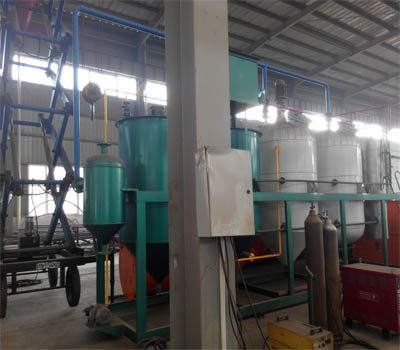What are the advantages and disadvantages of edible oil deodorization process?
Deodorization is one of the common processing procedures in edible oil refineries and an important link in edible oil processing. Advantages and disadvantages of deodorization process are mainly reflected in the following aspects:

Advantages:
- Improve the quality of oil products: Deodorization process can effectively remove the odor and impurities in edible oil, improve the taste and quality of edible oil, and make it more fragrant and pure.
- Increase the stability of oil products: Deodorization process can remove free fatty acids and oxidation products in edible oil, prolong the shelf life of edible oil and improve its stability.
- Improve the color of oil products: through deodorization process, the color of edible oil can be more transparent and bright, and the appearance appeal can be improved.
- Removal of harmful substances: Some deodorizing procedures can also remove harmful substances in edible oil, such as free fatty acids, which improves the health value of edible oil.
- Preserve nutrients: A reasonable deodorization process can retain nutrients in edible oil to the maximum extent, making it healthier.
Disadvantages:
- High energy consumption: the deodorization process needs high-temperature heating and vacuum degassing, which consumes a lot of energy and increases production cost.
- Complex process: The parameters such as temperature, pressure and time need to be strictly controlled in the deodorization process, and the process flow is complex and the operation technology is highly required.
- High requirements for equipment: Deodorizing equipment needs to have certain high temperature resistance, corrosion resistance and sealing performance, and the equipment investment and maintenance costs are high.
- The pressure of environmental protection is great: the deodorization process produces a large amount of sewage and waste gas, which has a certain impact on the environment and requires effective sewage treatment and waste gas treatment.
To sum up, edible oil deodorization process has obvious advantages in improving oil quality, increasing oil stability, improving oil color, removing harmful substances and retaining nutrients, but there are some shortcomings in energy consumption cost and environmental protection. In view of the shortcomings of deodorization process, energy consumption and production cost can be reduced by technical improvement and equipment renewal, and the efficiency and economy of deodorization process can be improved. In actual production, it is necessary to comprehensively consider various factors and reasonably choose deodorization technology and equipment to achieve the balance between economic benefits and environmental protection benefits.
